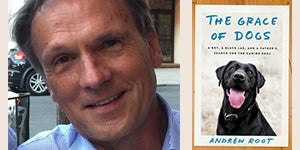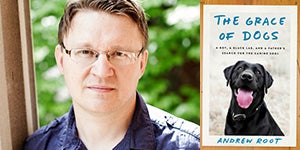Growing Up Black, Christian and Female in White America
May 15, 2018
 From Austin Channing Brown, a powerful new narrative nonfiction voice on racial justice, comes I’M STILL HERE: Black Dignity in a World Made for Whiteness, published by Convergent today, May 15. This book is an eye-opening account of growing up Black, Christian, and female in middle-class white America. Ms. Brown’s first encounter with a racialized America came at age 7, when she discovered her parents named her Austin to deceive future employers into thinking she was a white man.
From Austin Channing Brown, a powerful new narrative nonfiction voice on racial justice, comes I’M STILL HERE: Black Dignity in a World Made for Whiteness, published by Convergent today, May 15. This book is an eye-opening account of growing up Black, Christian, and female in middle-class white America. Ms. Brown’s first encounter with a racialized America came at age 7, when she discovered her parents named her Austin to deceive future employers into thinking she was a white man.
 What inspired you to develop your writing talents and become an author?
I have always loved reading and admired authors, but I never imagined I could be one! The experience of blogging gave me the first taste of possibility. I am so grateful for the ways technology has opened doors of opportunity. Once I started blogging, then I had friends and mentors who really encouraged me to take writing to a new level by writing articles and then a book.
How would you describe the genesis of this book and the process of deciding what experiences to chronicle and which points to emphasize?
The genesis of this book was hard won. It took me quite a bit of time to figure out who I am as an author. It felt so big – writing a book. I thought I had to pretend to be a historian or theologian or academic of some kind. Eventually I had to realize that what I am an expert in is my life experience. I can bring in some of those other elements, but I had to embrace me first. I was very inspired by two works of art: BETWEEN THE WORLD AND ME by Ta-Nehisi Coates and For Colored Girls Who Have Considered Suicide/When the Rainbow is Enuff by Ntozake Shange. I really wondered what it would like to have a book that sort of lived at the intersection of those two works – really addressing race in America like Coates, but focusing intentionally on the experiences of black women like Shange. Once I had that mission in mind, it became much easier to organize the content around those two ideas.
Why is Convergent the best publishing home for I’M STILL HERE?
There are a few reasons why Convergent was the best place for I’M STILL HERE. It was really important to me that my voice remain true. I didn’t want to be tampered down, from being able to use four-letter words when appropriate to not making my voice softer or more palatable. As a black woman, talking about race I knew many publishers would be tempted to smooth over my rough edges to make the book as universal as possible. I liked that Convergent seemed to appreciate my edges rather than desire to erase them. Also when I talked to the Convergent team about my proposal, they just seemed to "get it." We had a really rich conversation building on one another’s ideas. I knew they understood what I was trying to do, and I trusted they could make the project better.
What elements of your book do you hope will resonate most strongly with readers?
I hope that readers will begin to give greater consideration to the inherent dignity of black bodies, black culture, and all that black history has given to America.
What inspired you to develop your writing talents and become an author?
I have always loved reading and admired authors, but I never imagined I could be one! The experience of blogging gave me the first taste of possibility. I am so grateful for the ways technology has opened doors of opportunity. Once I started blogging, then I had friends and mentors who really encouraged me to take writing to a new level by writing articles and then a book.
How would you describe the genesis of this book and the process of deciding what experiences to chronicle and which points to emphasize?
The genesis of this book was hard won. It took me quite a bit of time to figure out who I am as an author. It felt so big – writing a book. I thought I had to pretend to be a historian or theologian or academic of some kind. Eventually I had to realize that what I am an expert in is my life experience. I can bring in some of those other elements, but I had to embrace me first. I was very inspired by two works of art: BETWEEN THE WORLD AND ME by Ta-Nehisi Coates and For Colored Girls Who Have Considered Suicide/When the Rainbow is Enuff by Ntozake Shange. I really wondered what it would like to have a book that sort of lived at the intersection of those two works – really addressing race in America like Coates, but focusing intentionally on the experiences of black women like Shange. Once I had that mission in mind, it became much easier to organize the content around those two ideas.
Why is Convergent the best publishing home for I’M STILL HERE?
There are a few reasons why Convergent was the best place for I’M STILL HERE. It was really important to me that my voice remain true. I didn’t want to be tampered down, from being able to use four-letter words when appropriate to not making my voice softer or more palatable. As a black woman, talking about race I knew many publishers would be tempted to smooth over my rough edges to make the book as universal as possible. I liked that Convergent seemed to appreciate my edges rather than desire to erase them. Also when I talked to the Convergent team about my proposal, they just seemed to "get it." We had a really rich conversation building on one another’s ideas. I knew they understood what I was trying to do, and I trusted they could make the project better.
What elements of your book do you hope will resonate most strongly with readers?
I hope that readers will begin to give greater consideration to the inherent dignity of black bodies, black culture, and all that black history has given to America.
Talking About THE GRACE OF DOGS, Pt. 2: Convergent’s David Kopp on The Making of a Tail Wagger
June 19, 2017
 David Kopp, Vice President, Executive Editor, Convergent Books, edited Andrew Root’s book, THE GRACE OF DOGS, and was instantly drawn into this engaging story – a heart-warming, enlightening read for anyone who has ever owned, loved and lost a dog, and who wanted to further explore the full scope of the human-dog relationship, including “how our dogs shape us, and how they serve as ‘teachers,’ of sorts.”
David Kopp, Vice President, Executive Editor, Convergent Books, edited Andrew Root’s book, THE GRACE OF DOGS, and was instantly drawn into this engaging story – a heart-warming, enlightening read for anyone who has ever owned, loved and lost a dog, and who wanted to further explore the full scope of the human-dog relationship, including “how our dogs shape us, and how they serve as ‘teachers,’ of sorts.”
Talking About THE GRACE OF DOGS, Pt. 1: Author Andrew Root on Our Deep Canine Connections
June 19, 2017
 The joy of having a dog family member cannot be easily measured, nor can the pain felt when the time comes to say goodbye to a furry loved one. Andrew Root offers illuminating, personal insights into this human-dog dynamic in his book, THE GRACE OF DOGS: A Boy, A Black Lab, and A Father’s Search for the Canine Soul, published by Convergent, a Crown Publishing Group imprint, on Tuesday, June 20.
The joy of having a dog family member cannot be easily measured, nor can the pain felt when the time comes to say goodbye to a furry loved one. Andrew Root offers illuminating, personal insights into this human-dog dynamic in his book, THE GRACE OF DOGS: A Boy, A Black Lab, and A Father’s Search for the Canine Soul, published by Convergent, a Crown Publishing Group imprint, on Tuesday, June 20.
Popular Company News
Former First Lady Michelle Obama to Publish THE LOOK With Crown Publishing Group
June 5, 2025
The Crown Publishing Group today announced THE LOOK, a new book from Michelle Obama, former First Lady of the United States, to be published November 4, 2025.…
PRH Acquires Wonderbly, One of the UK’s Fastest-Growing Independent Publishers and Leader in Personalized Gift Books
June 4, 2025
Acquisition Underscores Penguin Random House’s Commitment to Innovation and Growth Penguin Random House, a leading global trade book publisher, has acquired Wonderbly, one of the UK’s…
Matthew McConaughey, Academy Award-Winning Actor and Author of GREENLIGHTS, to Publish New Book With Crown
June 26, 2025
Crown, an imprint of the Crown Publishing Group, announced the September 16 publication of POEMS & PRAYERS by Matthew McConaughey, an eternal optimist, Academy Award–winning actor,…
Legendary Thriller Author Frederick Forsyth Passes Away at 86
June 10, 2025
Frederick Forsyth, bestselling author, British RAF pilot, and journalist died on Monday, June 9, 2025. He wrote eighteen espionage thrillers including THE DAY OF THE JACKAL, THE…
PYR to Publish New Book for Tweens Inspired by the #1 NYT Bestseller, THE ANXIOUS GENERATION
May 21, 2025
Rocky Pond Books, an imprint of Penguin Young Readers, will publish a companion to social psychologist Jonathan Haidt’s #1 New York Times bestselling and culturally transformative…
Tiny Reparations Books Celebrates Their 5th Anniversary and Publication of Tourmaline’s MARSHA
June 4, 2025
On May 22, Tiny Reparations Books celebrated two momentous occasions: the 5th anniversary of the imprint and the launch of the National bestseller MARSHA, Tourmaline’s highly anticipated biography…
Companhia das Letras Recognized in Folha De S. Paulo’s Best Brazilian Books of the 21st Century
June 9, 2025
Folha de S. Paulo, a renowned Brazilian daily newspaper founded in 1921, recently released an issue celebrating the most noteworthy Brazilian literature of the 21st century. …
Penguin Young Readers to Publish Debut Picture Book by Jalen Hurts, Philadelphia Eagles Quarterback and Super Bowl MVP
June 24, 2025
Jalen Hurts, Philadelphia Eagles quarterback and 2025 Super Bowl MVP, will publish his debut children’s picture book with Flamingo Books, an imprint of Penguin Young Readers…
HEART LAMP Wins the International Booker Prize
May 21, 2025
On Tuesday, May 20, HEART LAMP (India Penguin) by Banu Mushtak, translated by Deepa Bhasthi, won the 2025 International Booker Prize. The winning title, a collection…
